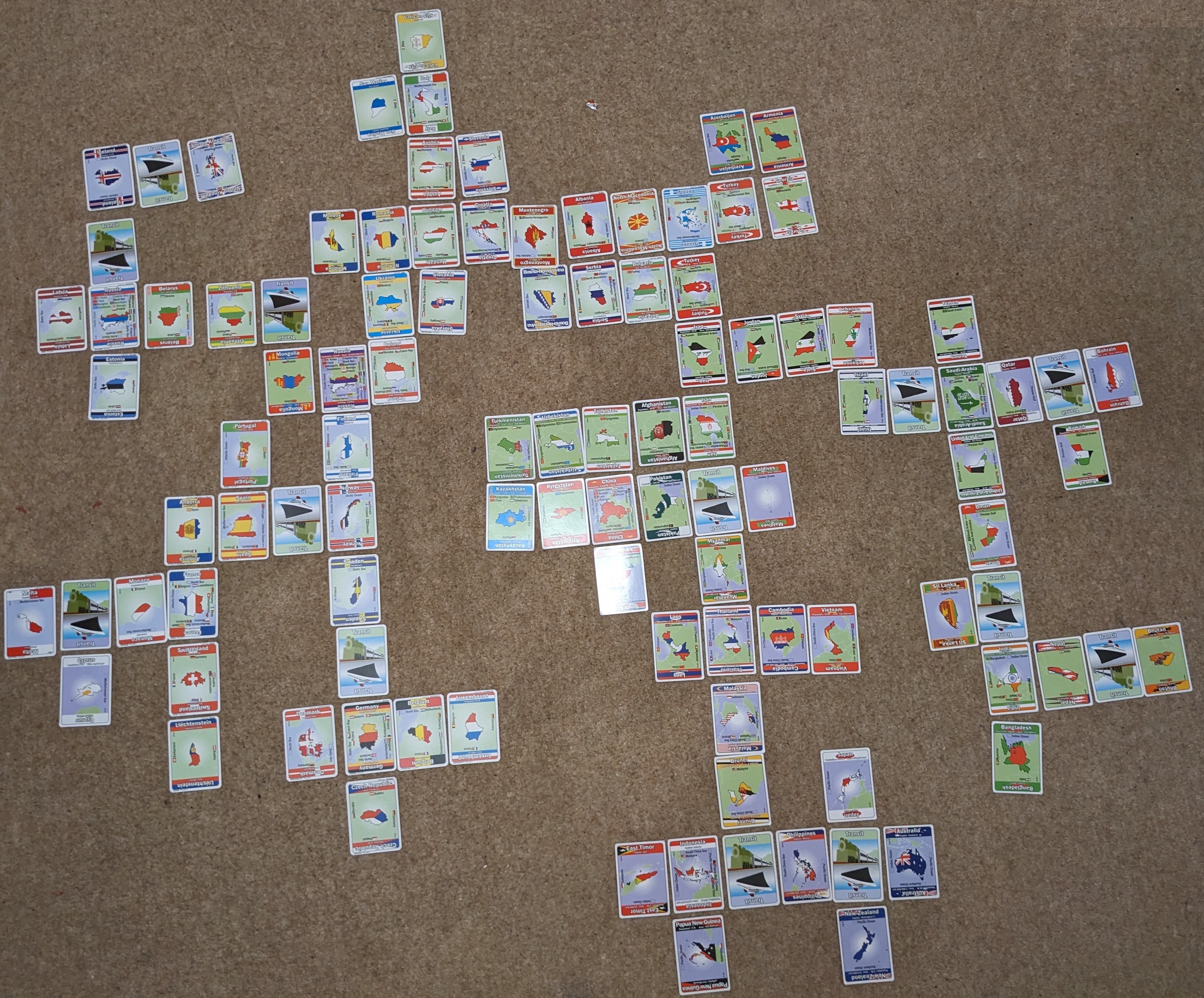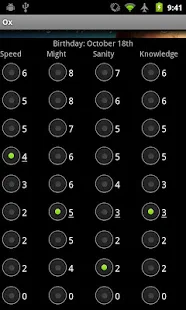Mapominoes - or learning to hate islands even more than when playing Plague Inc.
A while ago I bought Mapominoes Europe on a whim, and I’m now having to fight the urge to buy its many variations/expansions.
As the title suggests it is broadly based on dominoes, but instead of placing tiles by the numbers they have in common, it is based on countries with shared borders. Also unlike dominoes the cards are played not in a line but in a grid, and all neighbours have to be compatible.
The mechanics are simple enough to pick up and the game is quite suitable for children - I’m having fun playing with my six year old. It does hide some surprising depth though.
All the cards are dealt between the players and the goal is to be the first to play all your cards. Every player also starts with a pair of transit cards which can be played as stand-ins for either a sea (which are listed on the cards just like countries) or as another country. You get an extra turn if you can play a card bordering more than one card, and miss a turn if you are forced to draw another transit card because you can’t go.
There are several versions of the game, some of which are compatible with each other and can be combined into a larger game. The compatibles ones are:

A finished game of Europe and Asia & Australasia
There are also two standalone games:
- USA (states)
- United Kingdom (counties)
After getting the Europe set I also got the Asia & Australasia set. Despite it taking up a lot of space, playing with those two was a lot of fun. Trying to play game with more than two would be challenging I think (although specifically in the case of those two it is helped by both sets containing Russia and Turkey).

